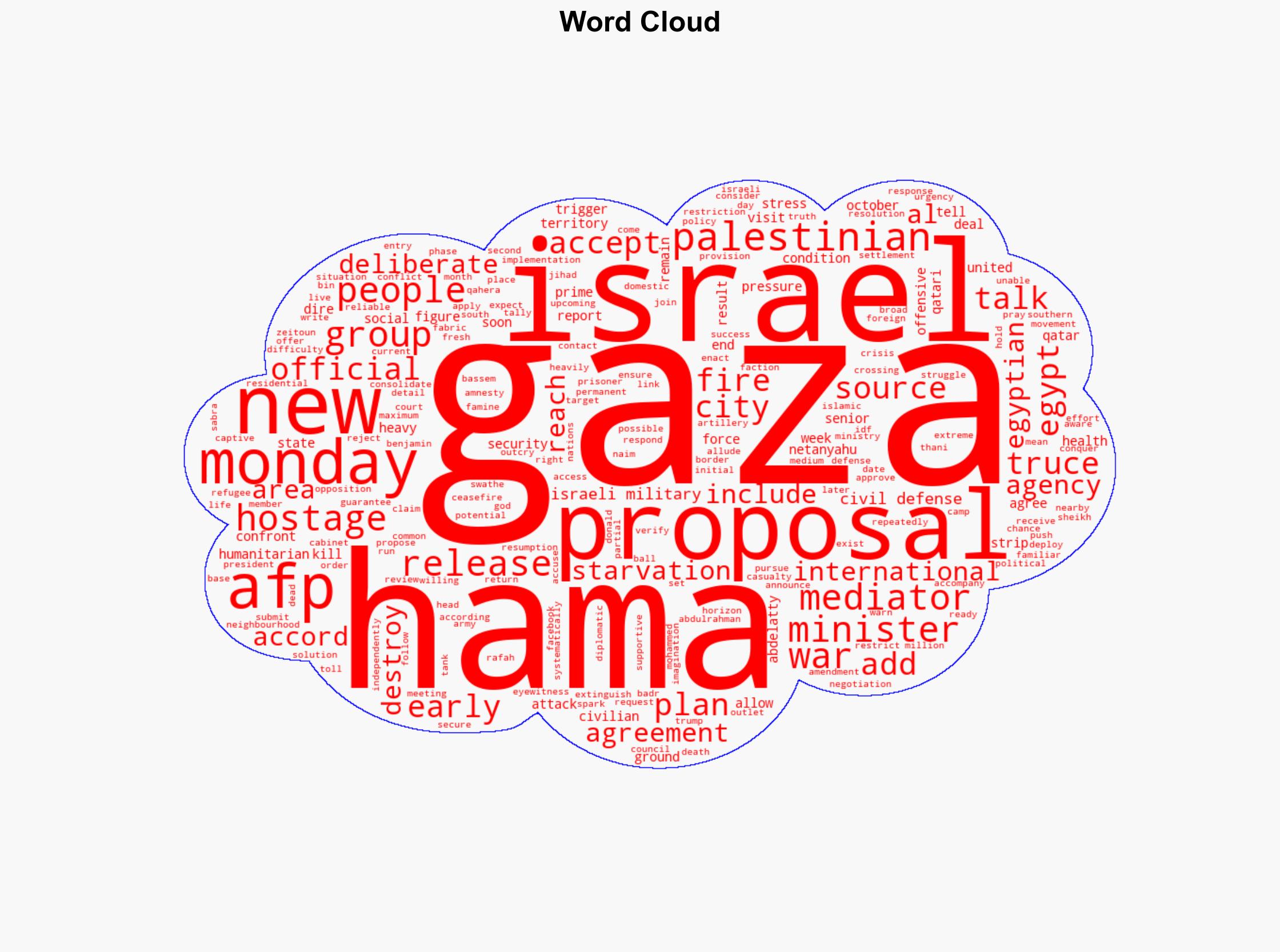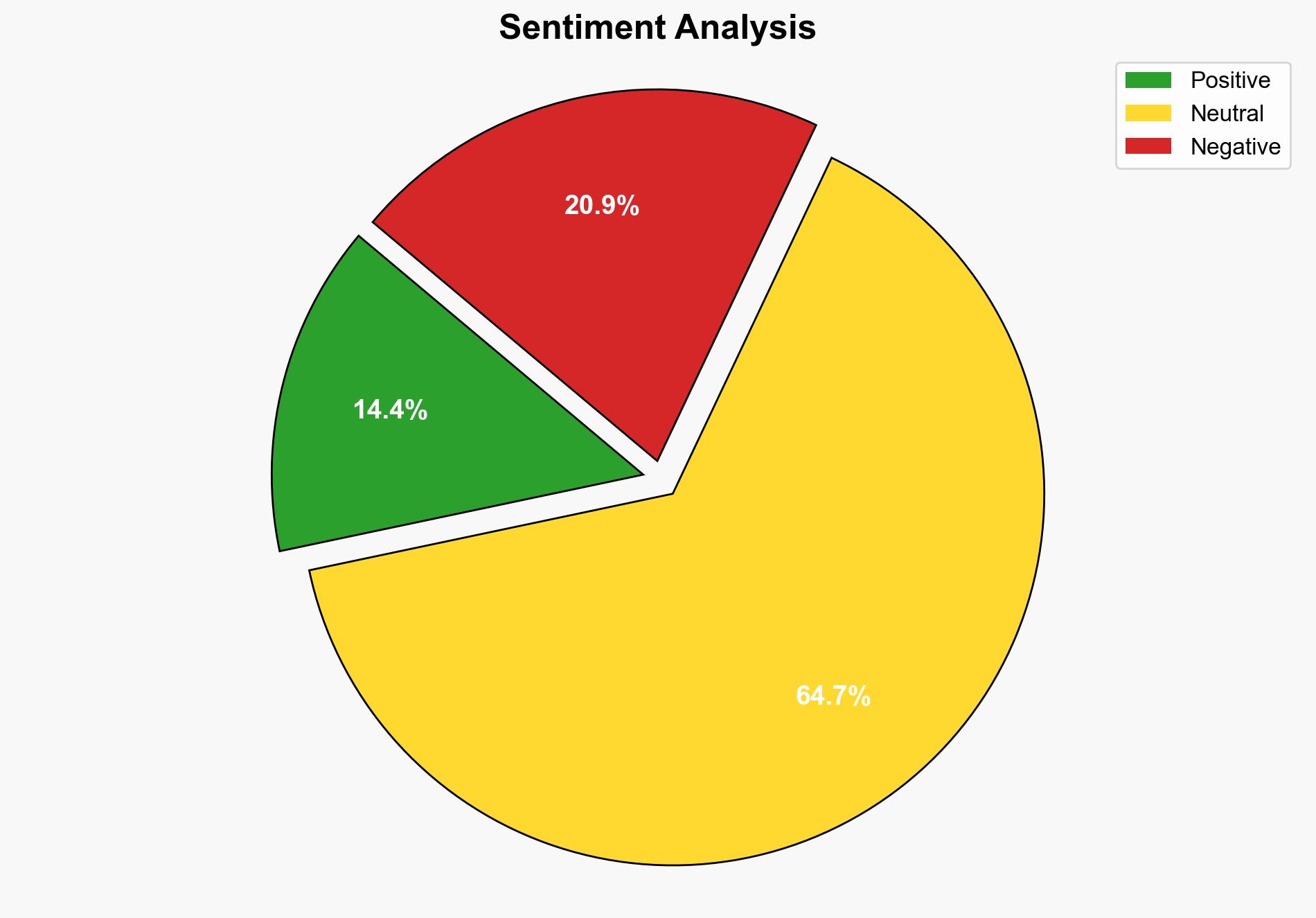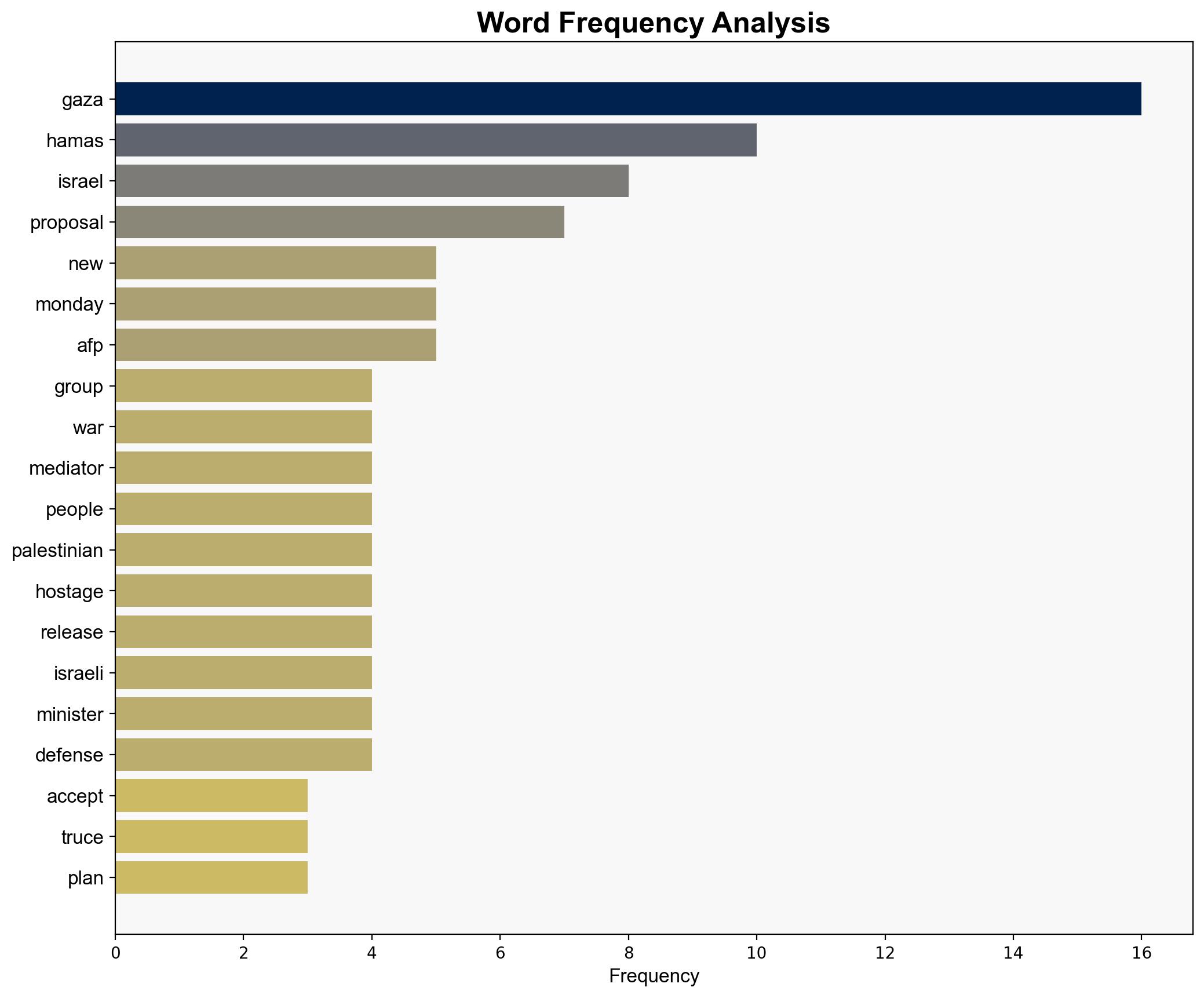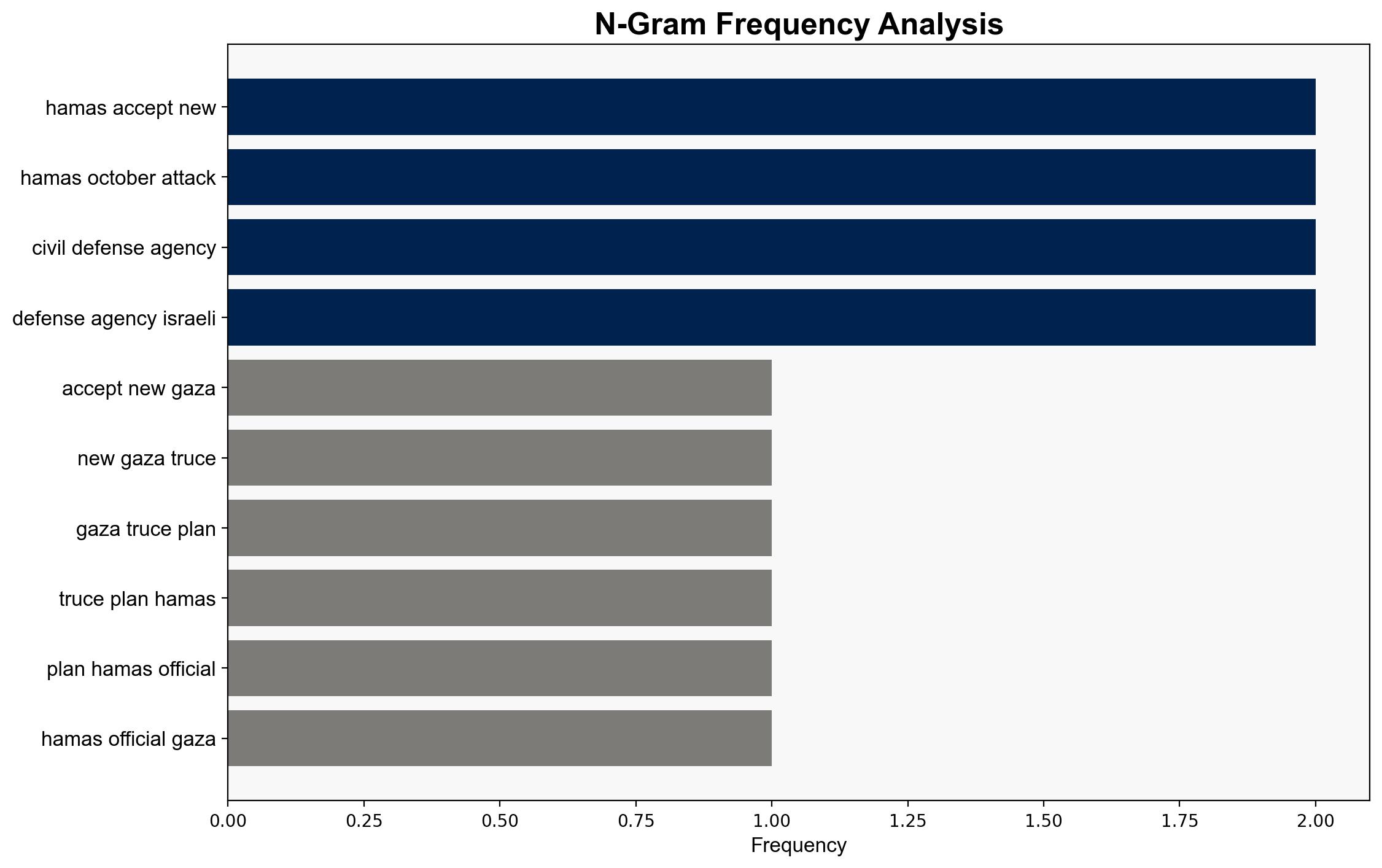Hamas accepts new Gaza truce plan Hamas official – Hurriyet Daily News
Published on: 2025-08-19
Intelligence Report: Hamas accepts new Gaza truce plan Hamas official – Hurriyet Daily News
1. BLUF (Bottom Line Up Front)
The most supported hypothesis is that Hamas is genuinely engaging in the truce negotiations to alleviate the humanitarian crisis in Gaza and secure a strategic pause. Confidence Level: Moderate. Recommended action: Monitor the implementation of the truce and prepare contingency plans for potential breakdowns in negotiations.
2. Competing Hypotheses
1. **Hamas is genuinely engaging in the truce negotiations**: This hypothesis suggests that Hamas is motivated by the dire humanitarian conditions in Gaza and the pressure from international mediators to agree to a ceasefire. The acceptance of the proposal and willingness to discuss amendments indicate a strategic move to secure a temporary peace and humanitarian relief.
2. **Hamas is using the truce negotiations as a tactical maneuver**: This hypothesis posits that Hamas is using the negotiations to regroup and strengthen its position. The acceptance of the truce could be a strategic delay tactic to prepare for future hostilities, leveraging international pressure on Israel to gain concessions without a genuine commitment to peace.
3. Key Assumptions and Red Flags
– **Assumptions**:
– The humanitarian crisis is a primary motivator for Hamas.
– International mediators have sufficient influence over both parties.
– **Red Flags**:
– Lack of clarity on the amendments requested by Hamas.
– Potential for miscommunication or misinterpretation of intentions between parties.
– Historical precedent of failed truces in the region.
4. Implications and Strategic Risks
– **Implications**: Successful truce implementation could lead to improved humanitarian conditions and a temporary reduction in hostilities. However, failure could exacerbate the crisis and lead to renewed violence.
– **Strategic Risks**:
– Escalation of conflict if negotiations collapse.
– Increased regional instability affecting neighboring countries.
– Potential for international backlash against perceived inaction or bias.
5. Recommendations and Outlook
- Monitor the implementation of the truce closely and engage with international partners to ensure compliance.
- Prepare for potential scenarios:
– **Best Case**: Successful truce leading to long-term peace negotiations.
– **Worst Case**: Breakdown of talks leading to intensified conflict.
– **Most Likely**: Temporary truce with intermittent violations. - Enhance diplomatic efforts to address underlying issues and promote a sustainable peace process.
6. Key Individuals and Entities
– Bassem Naim
– Israeli Prime Minister Benjamin Netanyahu
– Egyptian Foreign Minister Badr Abdelatty
– Qatari Prime Minister Sheikh Mohammed bin Abdulrahman Al Thani
7. Thematic Tags
national security threats, regional focus, conflict resolution, humanitarian crisis





